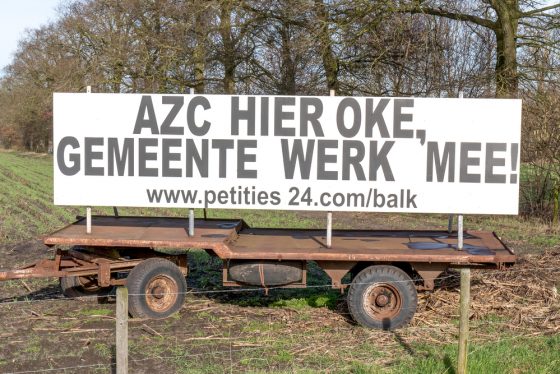Deals to return asylum seekers ‘have little effect’, researchers say


Politicians need to be more ‘realistic’ about the difficulty of sending people who have been refused asylum back to their countries of origin, researchers for the justice ministry have said.
Existing studies show only between 30% and 40% of those whose applications are turned down actually return, while others either evade the authorities or cannot go back because their former countries turn them away.
‘We should be honest: full enforcement isn’t possible,’ Arjan Leerkes, professor of migration at Maastricht University and a member of the justice ministry’s research centre WODC, told the Volkskrant.
The Netherlands has improved its relations with so-called ‘safe countries’ such as Morocco, Georgia and Tunisia in an effort to return failed asylum seekers, after justice minister Dilan Yesilgöz said the policy was a ‘top priority for the cabinet’.
Last year the Dutch government said it was in talks with Morocco to draw up an extradition treaty.
Relations between the two countries soured in 2018 when the then foreign affairs minister, Stef Blok, criticised the suppression of protests in the Rif mountain range, but they have since improved. In May the Netherlands said it supported Morocco’s plans to grant more autonomy to Western Sahara, which was illegally annexed in the 1970s.
Leerkes said agreements at national and European level were dependent on good relations with the receiving country. ‘Goodwill and good personal relations are equally important, our interview with officials dealing with repatriation have shown.’
‘Imperative to stay’
EU-wide agreements have also had little effect, Leerkes said. ‘The paradox is that the harder it is to get into Europe, the greater the imperative is to stay. In that sense you could say that returning 30% is a considerable achievement.’
He also suggested the Netherlands could learn from Germany, where people who are unable to return to their home country can be eligible for retraining programmes.
‘It’s typical of Europe that on the one hand it imports a lot of labour, but on the other it’s cobbled together a whole system for keeping people out. You could bring the two together to make things more fluid.’
Thank you for donating to DutchNews.nl.
We could not provide the Dutch News service, and keep it free of charge, without the generous support of our readers. Your donations allow us to report on issues you tell us matter, and provide you with a summary of the most important Dutch news each day.
Make a donation